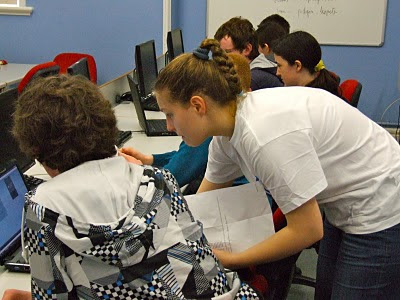
What promises to be an exciting night of Retro Gaming will take place from 6pm until 8pm this Friday (Sept 23rd) in the National Computer and Communications Museum located in the Digital Enterprise Research Institute (DERI) at NUI Galway.
This event is being held as part of ‘National Culture Night’ and visitors will be able to enjoy playing video Arcade classics including Pacman, Asteroids and Space Invaders on renowned vintage consoles and computers such as Atari, Amiga and Sinclair ZX81.
The sights and sounds on offer will try to capture the essence of the early days of computer gaming of the 1970s and 1980 which made a major contribution in the overall development of digital sound and graphics.
But attendees will also be introduced to the software coding that constitutes the games. They will be allowed to actually input these computer programmes line by line, to experiment with the code and to make their own creative enhancements. This should give participants a better understanding of how digital technology actually works. For a key aim of this event is be part of a process of introducing young people in particular to the software infrastructure behind popular devices such as smart phones, sensors and laptops thus hopefully inspiring them to consider careers in computer science and engineering which are essential prerequisites in creating a sustainable knowledge-based innovative society that will help secure a niche for Ireland in an ever-changing world.
It must be remembered that a previous young generation enthusiastically took on similar challenges during the early days of computing and created many of the technologies that we use today. They became innovators and entrepreneurs combining youthful imagination, artistic skills with a scientific understanding.
When microcomputers such as Sinclairs, BBCs and Apple 11s were first introduced into Irish schools during the early nineteen eighties, children often had to write their own programmes as there were few affordable applications available. Sadly this ability to be taught how to make things in IT classes has been replaced in the intervening decades by a policy of only teaching pupils to use applications such as word-processing and databases. Whilst this is a laudable exercise, nevertheless we must re-educate our young people in the lost art of computer coding which should be considered a life skill that forms part of the national educational curriculum. Otherwise we will remain, what in literary parlance could be referred to, as a nation of readers rather than of writers.
Over the last year, DERI mentors have provided computer programming courses to primary and post-primary schools in Connacht. In partnership with the Galway Education Centre and other stakeholders, we intend to roll out courses in programming to as many schools as possible over the next year. We will also be promoting the setting up of an inter-schools’ students Computer Club and encouraging participants to draw inspiration from visits to Ireland’s only museum which highlights the important but oftentimes hidden role of Irish people, women and young people in the history of world communications.




No comments:
Post a Comment